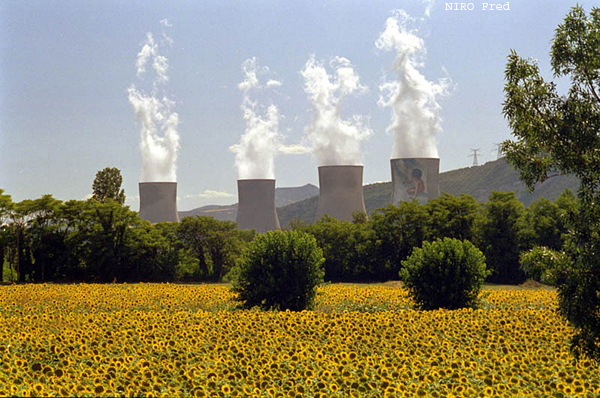France has pledged long-term support for Warsaw’s nuclear ambitions, saying that French technology can bolster Poland’s “energy sovereignty” and help the coal-dependent country meet EU targets to reduce emissions.
On Monday, EDF, France’s state-owned electric utility, opened an office in Warsaw to accelerate work on potential nuclear cooperation. Poland plans to have six operational nuclear blocks by 2043, and a number of countries are vying for business and strategic partnerships, including the United States and South Korea.
“France offers a European solution based on third-generation EPR technology, already recognised by several European nuclear safety authorities,” said Philippe Crouzet, Paris’s high representative for nuclear cooperation with Poland, quoted by the Polish Press Agency (PAP).
He noted France’s 50 years of experience in the sector, adding that nuclear energy would be key to achieving European climate goals and needed to be “defended” by strong advocates across the EU, hinting at opposition from countries such as Germany.
“That is why it is so important that France and Poland cooperate so that the EU recognises nuclear energy as an absolutely necessary element in the process of decarbonisation,” said Crouzet.
Poland’s government has been looking for ways to wean the country off coal, which currently accounts for around 70% of electricity production, the highest level in the EU. Current plans see that share falling to under 60% by 2030, and potentially as low as 11% by 2040.
France’s ambassador to Poland, Frédéric Billet, said his government was determined to become involved in Poland’s development of nuclear energy as part of a long-term partnership. “We have a similar vision to the Polish government,” he said. “Without energy sovereignty, there is no sovereignty.”
EDF’s vice-president for new nuclear projects, Vakis Ramany, also said that the company was considering investments in the local workforce as well as “various financing tools” to secure the deal.
The Polish government expects the winning partner to also take a 49% stake in the operation, thus providing financing for the construction and later running of its plants.
According to the Polish government’s official Polish Nuclear Energy Programme (PPEJ), the country’s first reactor is due to go online by 2033, with five more to follow by 2043.
The climate ministry last year outlined that the aim is to have a total installed nuclear capacity of around 6 to 9 GW, at an estimated cost of 80 billion zloty (€17 billion). But some experts fear that the proposed timeline is overly optimistic.
EDF’s offer of a large European Pressurised Reactor (EPR) reactor meets the stipulations of the PPEJ, reports PAP. The company has built the same third-generation units elsewhere in Europe, including in Britain’s delayed Hinkley Point C project.
Korea Hydro & Nuclear Power has declared an interest in developing clean energy projects in Poland, including taking part in its $20.75 billion nuclear plans https://t.co/rGvTwH2P8l
— Notes from Poland 🇵🇱 (@notesfrompoland) April 7, 2021
The US – which has signed an intergovernmental agreement with Warsaw to submit an offer next year – is also in the running with its AP1000 pressurised water reactor, designed by Westinghouse Electric Company, which also fulfils the requirements of Poland’s nuclear programme.
The company has already opened an office in Warsaw and is also establishing a Global Shared Services Center in Kraków, notes PAP.
South Korea is putting forward its Advanced Power Reactor (1400), also known as the Korean Next Generation Reactor (KNGR), which was advertised during a conference for Polish journalists in February this year, reports Energetyka24, an industry news website.
Warsaw is expected to make a decision by next year. “The final bell for the Polish government to make a decision will be the end of 2022,” said Thierry Deschaux, director of the new EDF Warsaw office, on Monday.
Poland's government is seeking Japanese partners in its plans to build the country's first nuclear power plants https://t.co/bOZ72Y7y1b
— Notes from Poland 🇵🇱 (@notesfrompoland) December 3, 2020
Main image credit: Fredniro/Wikimedia Commons (under CC BY 3.0)

Maria Wilczek is deputy editor of Notes from Poland. She is a regular writer for The Times, The Economist and Al Jazeera English, and has also featured in Foreign Policy, Politico Europe, The Spectator and Gazeta Wyborcza.




















